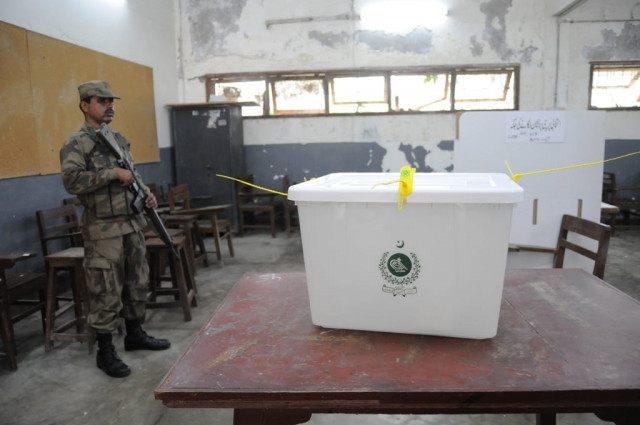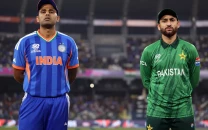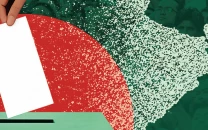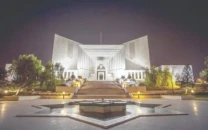Regional comparisons: Why fair elections matter for Pakistan
India’s ex-election commissioner asks Pakistan to learn from electoral system of its neighbour

India’s ex-election commissioner asks Pakistan to learn from electoral system of its neighbour. PHOTO: MOHAMMAD NOMAN/EXPRESS
India’s former chief election commissioner Dr S Y Quraishi says there are many social similarities between India and Pakistan and both countries can learn from each other.
Speaking with The Express Tribune about the poll commissions of the two countries, Quraishi said the Election Commission of Pakistan (ECP) has an edge over its Indian counterpart. In India, he said, the ruling party appoints members from the top bureaucracy whereas in Pakistan, retired judges with vast judicial experience are appointed after consultation with the opposition.
On the question of neutrality, Quraishi cited examples where the poll body exercised its authority by taking prompt action whenever someone was found violating the code of conduct for elections. One such example was removal of the chief secretary, home secretary and police chief in Uttar Pradesh state when the commission felt that they could influence polls in 2009.

“Neutrality is the first and foremost thing for bureaucracy. Hang him on the first tree if a bureaucrat fails to do so,” he said, taking about polling staff which conducts polls.
According to Dr Quraishi, the success of the Election Commission of India (ECI) rests on three key factors: utmost neutrality, continuous reforms and zero tolerance for violations.
Dr Quraishi is the first Muslim to have served as chief election commissioner of India. He retired in 2012. Before his stint at the ECI, Dr Quraishi served as secretary at the ministry of youth affairs and sports.
During a recent visit to Pakistan to participate in a roundtable organised by the Pakistan Institute of Legislative Development and Transparency (PILDAT), he invited the mainstream political leadership of Pakistan to visit their eastern neighbour.
“The political leadership of Pakistan should send a high-level delegation to India and see our system,” he said, adding that it would be better for Pakistan to learn what the IEC had already learnt instead of trying everything afresh.

Dr Quraishi is a proponent of the politics of tolerance. He cited several examples from his country where the loser accepts defeat with an open heart. He also advocated zero tolerance on part of polls’ bodies against any irregularity if it wants to establish its credibility.
Dr Quraishi is a strong proponent of Electronic Voting Machines (EVM) - a proposal the ECP is considering for the 2018 elections. Calling EVMs ‘wonder machines’, he said it is the easiest mechanism compared to the traditional manual voting system.
In Dr Quraishi’s opinion, for use of an EVM the voter does not need any skills except pressing a button which even an illiterate person can do. However, such a thing should be tested first as a pilot project like India did, before adopting it for the whole elections. It takes only three hours to compile results, he added.
“You cannot love democracy and hate politicians at the same time; bad people should be identified and isolated, but the entire political class must not be defamed,” he said. Dr Quraishi added that in India, everyone accepts the poll results and even archrivals congratulate the winners. He cited how Premier Narendra Modi presented a bouquet to his predecessor Manmohan Singh after his landslide victory in the elections. However for this, trust in the poll body is the key. “Today, all political parties, the judiciary and common people have confidence in India’s electoral body,” he said. He said that sometimes candidates take the poll commission to the courts but 99 per cent courts end up deciding the matter in the commission’s favour.
Despite all this, he feels there are areas where reforms are needed in his country. “We don’t know about sources of funding of more than 70 per cent parties,” he said, adding that there is a need in India to ensure audit of party funds through an independent auditor.
Published in The Express Tribune, February 14th, 2015.



















COMMENTS
Comments are moderated and generally will be posted if they are on-topic and not abusive.
For more information, please see our Comments FAQ